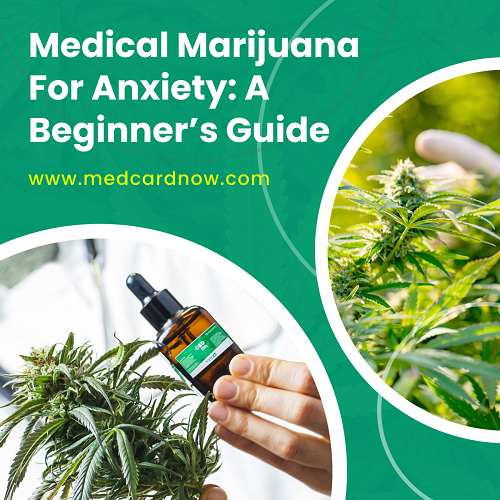
Did you know that many people are using marijuana for anxiety for centuries? The herb has many benefits in treating numerous physical and mental health conditions. You may be one of the many people who suffer from anxiety.
You might have come across the term ‘cannabis’ while researching its benefits. We frequently hear about its use as a treatment for chronic stress, depression, and other emotional or mental disorders. Especially as more individuals start using it recreationally. People consumed Cannabis in different ways, including vaporizing or smoking it.
These may be in the form of weed, hash oil, etc. Taking an edible such as a brownie or gummy bear containing the drug, or drinking a tincture made with it. Today, we explore the benefits of using medical marijuana for anxiety.
So whether you’re looking for relief from occasional anxiety attacks or want to treat your anxiety completely, these strains are sure to help!
Each method has its own pros and cons
Smoking provides fast-acting effects. Recommended for long-term use because smoking anything poses risks to your lungs. While vaping is safer than smoking but may not be as effective in relieving symptoms. Because vaping doesn’t hit your system with the same kind of psychoactive ingredients as smoking does.
Edibles take longer to kick in but last longer than either smoking or vaping. Although they can also have adverse side effects if taken incorrectly. Drinking tinctures is a good middle ground between edibles and smoking/vaping. But it requires mixing with something like lemon juice to mask its flavor.
What is Anxiety?
Anxiety is a feeling of worry, nervousness, or distress that can either be short- or long-term. It can be either psychological or physiological in nature and is often related to stress and depression. There are various types of anxiety disorders. Most of these have an association with a specific anxiety type, such as: Social Anxiety Disorder (SAD), Panic Disorder.
Others are general Anxiety Disorder (GAD), Post Traumatic Stress Disorder (PTSD), and Obsessive Compulsive Disorder (OCD).
Anxiety is a normal part of life, and can even be positive, helping us to stay alert, focused, and productive. However, when it’s too frequent or severe, it can become a debilitating problem that interferes with daily activities. It also affects your relationships. It also affects the quality of life. Potentially be fatal if left untreated.
How Does Marijuana Help with Anxiety?
The main psychoactive ingredient in marijuana is tetrahydrocannabinol or THC. These are responsible for the ‘high’ feeling user experiences after consumption. There are two different types of cannabinoid receptors in the human body.
CB1 receptors are found in the brain and CB2 receptors are found in the immune system. When cannabinoids like THC enter the body, they bind to these receptors and produce a wide range of effects. Both CB1 and CB2 play an important role in regulating anxiety.
When your body has too much anxiety, CB1 receptors become overactive. And it leads to the excess production of cortisol. It’s a hormone that helps your body deal with stress and regulate emotions.
Marijuana and Mental Health: What to Know?
Your cannabinoid receptors are in charge of regulating your mood, appetite, and sleep cycle. These also affect your overall physical and mental health. When you consume cannabis (or THC, the active ingredient in marijuana), it activates your cannabinoid receptors, inducing euphoria and relaxation.
Occasional use of marijuana is unlikely to cause any long-term problems. Daily or excessive use can result in marijuana dependence or addiction. And it increases your risk of developing psychiatric disorders like schizophrenia.
In fact, several studies have shown that long-term marijuana use can result in the same kind of mental health issues. As other drugs like tobacco or alcohol, such as anxiety, depression, paranoia, hallucinations, and delusions. In some cases, consuming marijuana can intensify the symptoms of pre-existing mental illnesses. Such as anxiety, increasing stress, and lowering self-esteem.
How to Use Cannabis for Anxiety Treatment?
It’s important to note that cannabis is not a cure for anxiety; rather, it can act as a short-term treatment for symptoms. While suffering from an anxiety disorder, you need to work with a specialist. This specialist will develop a tailored treatment plan.
These may involve different types of therapies, such as Cognitive Behavioral Therapy (CBT), and mindfulness. Meditation is also highly effective when used together. As CBT is a type of therapy that aims to change the way you think. It also approaches life situations, by using cannabis to reduce anxiety. And it may be associated with public speaking, which can be helpful.
Side Effects of Marijuana for Anxiety Treatment
There are both short- and long-term side effects while consuming. Long-term use of marijuana can lead to dependence. It’s potential mental health issues, while short-term side effects include feeling sleepy, headaches, and an upset stomach.
Cannabis can also affect your cognitive abilities, such as memory, attention, problem-solving, and decision-making. For those who suffer from anxiety, it is important to be aware of some risks. These are associated with marijuana and take necessary precautions to reduce the side effects.
Some ways to reduce the negative effects of cannabis. It may include choosing the Right Method and Strain. While there are no hard and fast rules when it comes to choosing the right method of consumption.
It is important to understand how different strains can affect you. Taking it in a Safe Environment. If you are using cannabis as a treatment for anxiety, make sure you are taking it in a safe environment. The place where you won’t be distracted or interrupted.
Avoid Combining it with Other Substances. Mixing cannabis with alcohol or other drugs can lead to serious side effects. It will increase your risk of developing an addiction.
The Bottom Line
Cannabis is an ancient plant with many health benefits, including helping with anxiety. It can be a helpful short-term treatment for symptoms. And it is important to understand that it is not a cure. You may suffer from anxiety, then you should work with a specialist to develop a tailored treatment plan.
It will involve different types of therapies. For long-term treatment, you might consider other drugs, such as antidepressants. Still, cannabis can be helpful along with other medications, or as a substitute when other drugs may not be suitable. The important thing is that you understand the risks and benefits of cannabis use.



